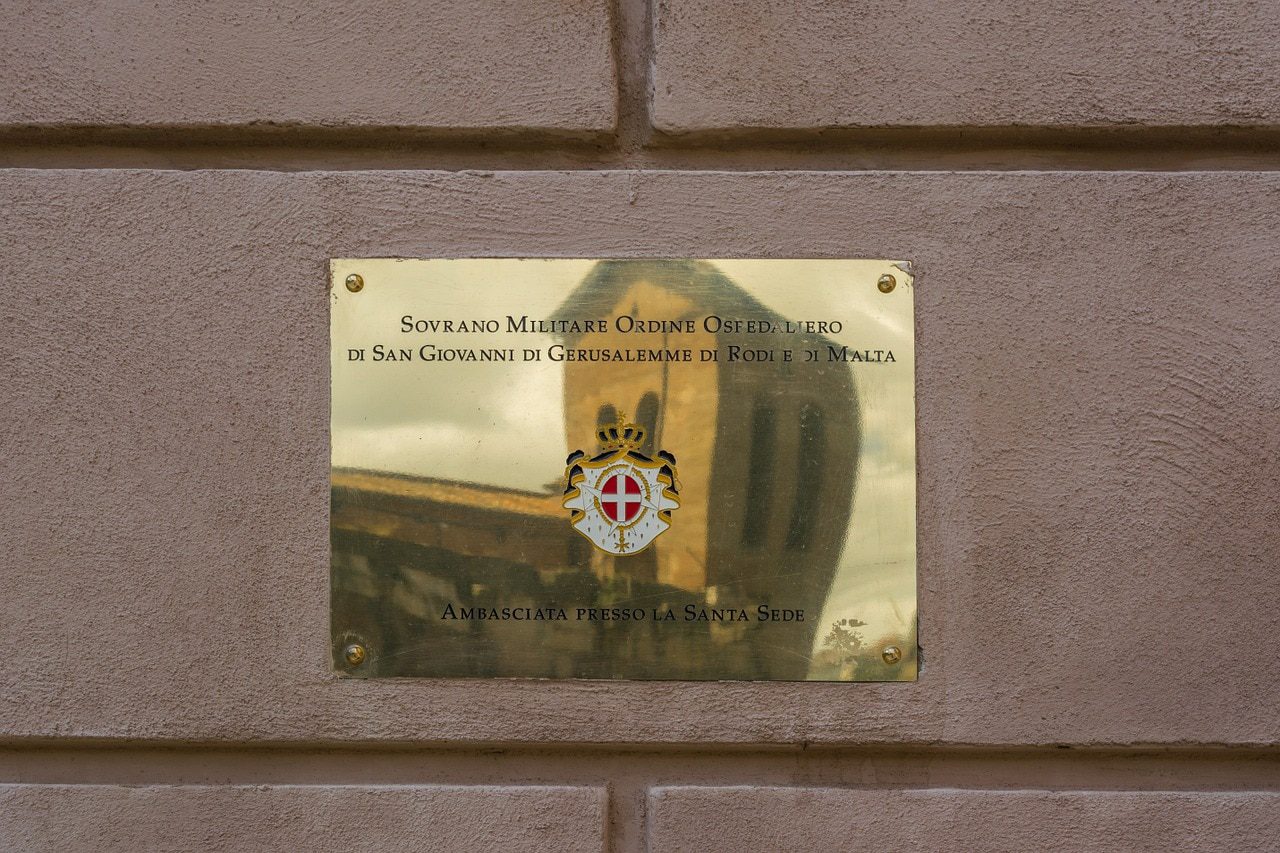
For several years, the Sovereign Military Hospitaller Order of St. John of Jerusalem, of Rhodes, and of Malta, better known as the Sovereign Military Order of Malta (SMOM), has been plagued by numerous internal crises, one of them being its relations with the Holy See. At the beginning of 2017, the Order’s Grand Master Fra’ Matthew Festing presented his resignation to the pope. Events leading to this moment involved a scandal lasting several months, with multiple twists and turns, surrounding a central vexing question: should the humanitarian aid action of a Catholic lay order be consistent with the moral teaching of the Church?
There are two conflicting visions: a “German” line, embodied by the Grand Chancellor Albrecht von Boeselager, who believes that the Order should be normalized, and another line, embodied by Matthew Festing, who fights for the Order to retain its religious character and not become an NGO like the others. An internal investigation concluded that the German Grand Chancellor was guilty of having knowingly allowed the financing and distribution of contraceptives (condoms, pills, abortion pills) by the Order of Malta in several developing countries. His resignation was requested—and refused—leading to a counter-inquiry imposed by the Vatican. The Order opposed the Vatican commission, believing that the Holy See should not interfere in its governance. Faced with the pressure to take some responsibility, it was Fra’ Festing who finally resigned at the request of Pope Francis.
Today, the question at stake pertains to the Order’s sovereignty. Following the crisis of 2017, it is a question of reforming the Constitutional Charter and the Code of the Order. The stated goal is twofold: to bring the Constitution into conformity with the 1983 canon law, something never achieved, and to refocus its original hospitable mission. But the project currently under study could have the effect of eliminating the Order’s centuries-old independence, which has existed for over nine hundred years. At present, the Order enjoys a unique status of sovereign independence, which allows it, for example, to issue its own passports, to have permanent observer status at the United Nations, and to maintain bilateral relations with some 100 states.
The new draft Constitution was written under the authority of Pope Francis’ special delegate to the Order, Cardinal Silvano Tomasi. Article 4 of the Order’s current Constitution defines it as a “legal person” and states that it has “diplomatic representation to the Holy See, in accordance with the norms of international law.” The revised version of this article reads: “The Order is subject to the Holy See, which also recognizes and protects it as an entity of international law.” Thus, the draft no longer provides for the Order to have diplomatic representation to the Holy See, as any other sovereign entity.
Even though the Order was expelled from the island of Malta by Napoleon in 1798 and thus found itself without territorial sovereignty, it has always been formally recognized as a non-territorial sovereign entity in treaties and international law. The disappearance of this specific status is not simply a matter of symbols. Its diplomatic status, for example, facilitates its humanitarian work in a number of countries around the world, particularly in Islamic lands, where an explicitly Vatican entity might not be readily accepted.
The new Constitution, along with a new legal code, is expected to be presented to the Order’s leadership on January 25th, before Cardinal Tomasi convenes a general chapter.
